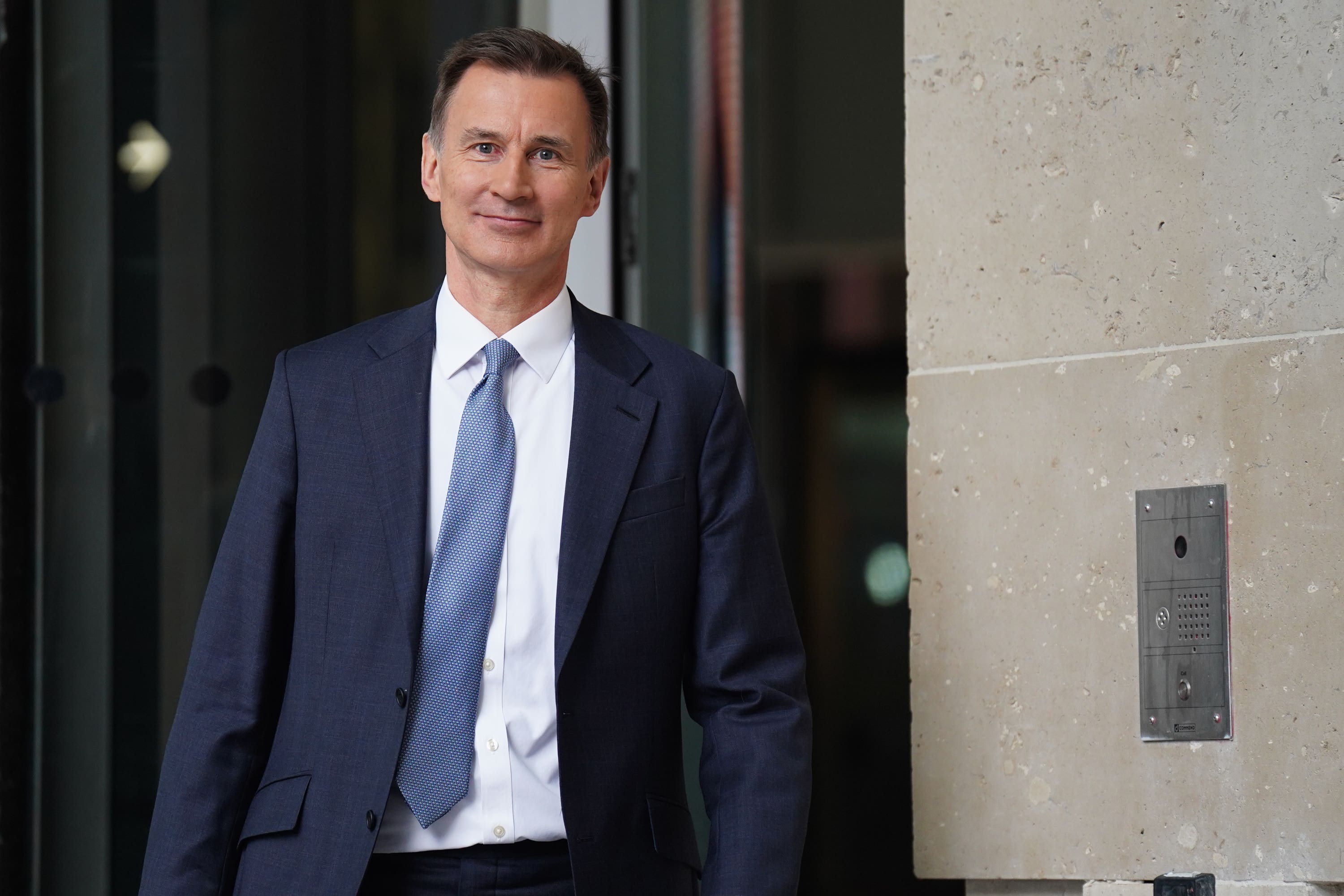The Independent's journalism is supported by our readers. When you purchase through links on our site, we may earn commission.
Jeremy Hunt’s tax cuts are a cynical pre-election ploy
Editorial: The chancellor’s package is one of the few possible game-changing shots in the Tories’ election locker. Yet voters, knowing that taxation has risen to its highest level in 70 years, are unlikely to be fooled by a small, crude pre-election bribe

To describe the signals from Jeremy Hunt ahead of his autumn statement on Wednesday as “mixed messages” is an understatement.
For months, the chancellor has tried to cool feverish demands from Conservative MPs for tax cuts – calls that inevitably grew as Rishi Sunak failed to dent Labour’s 20-point opinion poll lead. The priority, Mr Hunt said repeatedly, was the fight against inflation.
After last week’s welcome fall in the consumer prices index from more than 11 per cent to 4.6 per cent, delivering Mr Sunak’s pledge to halve it, the chancellor changed gear. He argued that the economy had “turned a corner”, while government sources hinted at a cut in inheritance tax and possibly stamp duty in the autumn statement on the grounds that such measures would not be as inflationary as reducing income tax or national insurance contributions (NICs).
On Saturday, the chancellor said he would set out “a path to a lower-tax economy”, and Sunday brought surprising reports that his bigger-than-expected headroom might, after all, allow him to announce a cut in income tax or NICs on Wednesday. Interviewed on the Sunday TV and radio politics shows, Mr Hunt declined to confirm or deny that. He suggested that his “path” might not be reached “overnight”, and again insisted that any moves would not be inflationary.
If he does announce a cut in personal taxation, then his previous remarks will look like a cynical attempt to downplay the prospect so that his autumn statement makes a bigger splash. He would doubtless have some cover from fiscal watchdog the Office for Budget Responsibility, which might increase his headroom against his fiscal rules from the tiny £6.5bn it forecast in March to about £20bn. This stems partly from a rise in the Treasury’s tax receipts due to high inflation. But, as the Resolution Foundation think tank has warned, inflation has also pushed up the cost of running public services, so it is an “illusion” that the greater fiscal headroom creates a fund for tax cuts.
It’s an open secret that the public spending plans for the next few years are unrealistically tight, and that whichever party is in power will be under enormous pressure to raise taxes to avoid a squeeze on Whitehall budgets. The overall 1 per cent per year rise in real terms, pencilled in from April 2025, will easily be gobbled up by commitments on the NHS, defence and overseas aid, leaving other departments facing painful cuts.
There is no shortage of pressing demands. For example, there is a strong case for reversing the cut in overseas aid, from 0.7 per cent to 0.5 per cent of gross national income, which has damaged the UK’s global reputation on the issue. Although David Cameron, now responsible for aid as foreign secretary, described the reduction as “breaking a promise to the poorest people and the poorest countries in the world,” a white paper on international development to be published on Monday will regrettably not raise the matter of government spending on it.
Given the immense pressures on spending, not least from a rising elderly population, a responsible chancellor would not cut personal taxation now, knowing full well that doing so could mean even bigger tax increases in future. Mr Hunt would surely not be contemplating tax reductions at this point if a general election were not fast approaching.
True, the election might tempt him to set traps for Labour, challenging Sir Keir Starmer to say whether he would reverse a Tory cut in the 20p basic rate of tax, or a rise in the thresholds and allowances that are currently frozen. But Mr Hunt should not sacrifice his reputation for providing stability by playing party politics and creating instability in the public finances.
It might be that the last-minute speculation about personal tax cuts reflects intense pressure on Mr Hunt from Mr Sunak, who is inevitably taking a very close interest in Wednesday’s package. After last week’s humiliating setback on the flawed plan to send asylum seekers to Rwanda, Mr Sunak is desperate for the autumn statement to appeal to his vocal right-wing MPs and the voters who have deserted his party. Yet he would be wise to take note that two-thirds of the public oppose the idea of cutting spending to reduce taxes, according to Ipsos.
Mr Hunt’s package is one of the few possible game-changing shots in the Tories’ election locker. Yet voters, knowing that taxation has risen to its highest level in 70 years, are unlikely to be fooled by a small, crude pre-election bribe. A prime minister who purports to be taking the right long-term decisions for the country should ensure that vital public services are safeguarded and not put in jeopardy by premature tax cuts.



Join our commenting forum
Join thought-provoking conversations, follow other Independent readers and see their replies
Comments